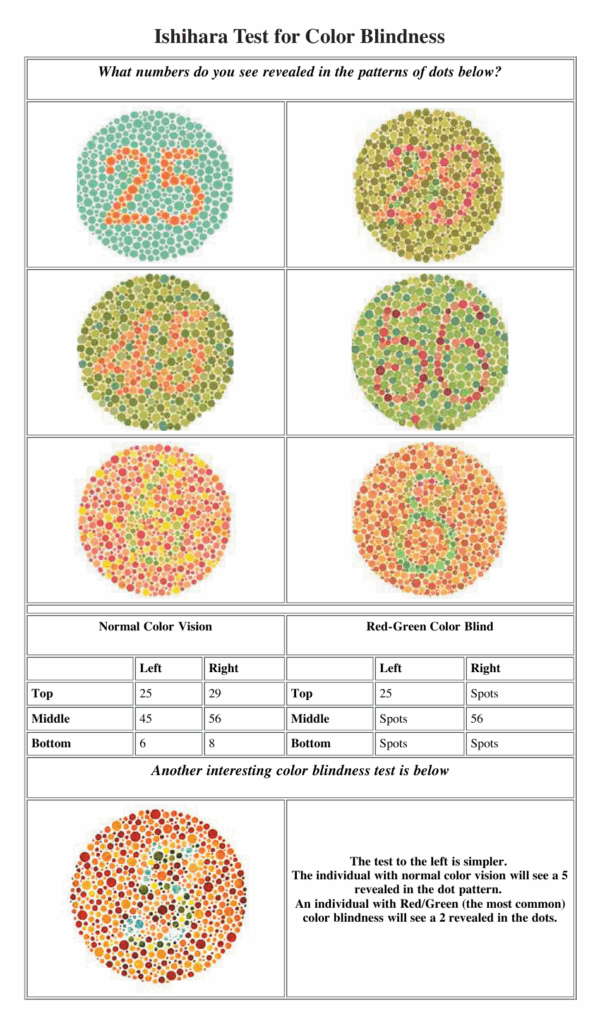The Ishihara test is a common method used to diagnose red-green color blindness. It consists of a series of plates with colored dots, where individuals with normal color vision can see a number or pattern, while those with red-green color blindness may struggle to identify the same number or pattern.
By using a Red Green Color Blindness Chart like the Ishihara test, healthcare professionals can determine the type and severity of color blindness a person may have. This information is crucial for making adjustments in daily life, such as choosing appropriate clothing or avoiding confusion in traffic signals.
Red Green Color Blindness Chart
Protanopia vs. Deuteranopia
Red-green color blindness is often categorized into two main types: Protanopia and Deuteranopia. Protanopia is characterized by a lack of red cones in the eyes, leading to difficulty distinguishing between red and green hues. On the other hand, Deuteranopia results from a deficiency in green cones, causing similar challenges in identifying red and green colors.
Understanding the differences between Protanopia and Deuteranopia can help individuals with color blindness navigate their environment more effectively. By using a Red Green Color Blindness Chart tailored to their specific type of color blindness, they can make informed decisions about color choices and enhance their overall quality of life.
Managing Red Green Color Blindness
While there is no cure for red-green color blindness, there are strategies to help individuals cope with this condition. One approach is to use color filters or special glasses that enhance the contrast between red and green colors. Additionally, technology has enabled the development of color-blind-friendly apps and tools that provide color assistance in various settings.
By incorporating these management techniques and regularly consulting a healthcare professional, individuals with red-green color blindness can effectively navigate their daily tasks and enjoy a colorful world with confidence.
